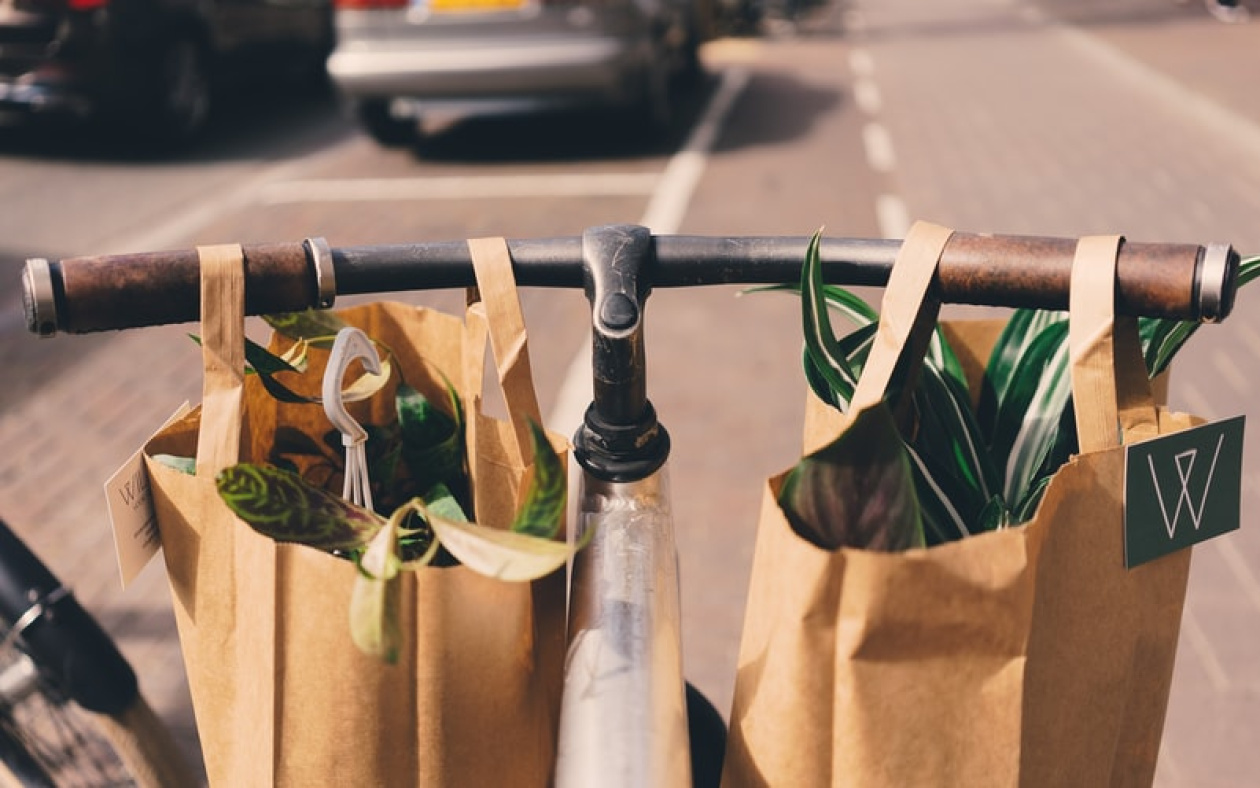 © Guus Baggermans - Unsplash
© Guus Baggermans - Unsplash
Buying green: make your consumer choices count
Last updated on Tuesday, 07/09/2021
Our well-being relies on the Earth’s natural resources, but if we keep using them the way we have been they might run out faster than we think. It’s time for change!
Our excessive consumption is draining the Earth’s resources and endangering the welfare of future generations. If we go on like this, by 2050 we'll need another planet's worth of resources to satisfy our demand!
Several small actions make a big difference!
We can turn this situation around by changing our lifestyles and adopting green consumer habits. It’s about asking ourselves where products come from and how they were produced, avoiding waste, making sustainable choices, reading labels more carefully, reusing and recycling, and making space for nature.
Here are some simple recommendations to become a greener consumer.
1. Limit your waste and recycle
Zero waste, or life without waste, is a worldwide trend. The main motto of this lifestyle is 5R (Refuse, Reduce, Reuse, Recycle, and Rot), which should be followed in that order.
Every time something ends up in the trash, it contributes to the environmental pressures on our planet. Remember, the best waste is the one that is not produced!
Small actions such as putting a “No Advertisement” sticker on your letterbox, using rechargeable batteries, opting for eco-refillable products or keeping a tote bag and refillable bottle with you helps in reducing waste (remember, tap water is drinkable all over Europe!).
A lot of waste also comes from our fridge, some tips include to buy and cook what you will actually eat (check Cooking and Shopping tips). Limit packaged take-out food as it produces a lot of waste (check this video) and avoid products with unnecessary packaging, especially plastic ones.
And of course, recycle, recycle, recycle. The EU is implementing a comprehensive waste strategy which also includes obligations for Member States to recycle waste. Of course, its implementation depends on all of us!
Finally, you can become an ambassador in your family, university or sports club by raising awareness on the importance of managing waste. For example, you can contribute by organising actions during the European Week of Waste Reduction.
2. Throwing away, no way!
Do you know repair cafés? Experts such as electricians, mechanics, carpenters, bicycle repairer and IT specialists volunteer their knowledge and know-how at your disposal to repair a toaster that does not work, a dress with holes or a broken piece of furniture.
The idea is to reduce our waste, to educate citizens about a sustainable way of life but also to promote social cohesion, to transmit know-how… Is there a repair café near you?
If you need a tool to build your new furniture, think about borrowing or renting it instead of buying a new one that you will use once or twice per year. It will be cheaper and more environmentally-friendly!
Finally, you can sell/buy and exchange the clothes and products you do not want to wear or use anymore. It can be at an exchange fair, car boot sale, flea market or dedicated online platforms. Of course, if it does not work, think about recycling or donating them!
3. Support community agriculture
Community-supported agriculture is a system that connects the producer and consumers within the food system more closely by allowing the consumer to subscribe to the harvest of a certain farm or group of farms.
It is an alternative socioeconomic model of agriculture and food distribution that allows the producer and consumer to share the risks of farming. It greatly limits the intermediaries, supports local farmers and you receive your products without packaging.
4. Check eco-labels
The environment-friendly products, services and companies are marked with a label.
Within the European Union, the EU Ecolabel can be awarded to products and services that have a low environmental impact. Look for the logo on stores, products, resorts, camp sites, and hotel reservations (an online catalogue is available). National labels also exist such as the “Nordic Swan” in the Nordic countries, “NF Environment” in France and “Blue Angel” in Germany.
5. Go for ethical products
It is important to be ethically conscious as well: what’s the impact of your consumption on other people? Are you promoting child labour or another form of human trafficking in a far-away country?
In the last years, especially in the fashion industry, scandals of human rights abuses have made a lot of noise. In what are called “sweatshops”, workers work seven days a week without holidays, do not receive decent wages, and are prevented from forming unions. You can put pressure on those industries by deciding where you spend your money, by signing petitions, supporting ethical trade movements and posting your opinion on social media.
When you buy products, consider opting for those coming from companies specialised in fair trade and ethical products, and look for labels such as the Fairtrade, Forest Stewardship Council, Fair Trade Certified or Rainforest Alliance Certified certifications.